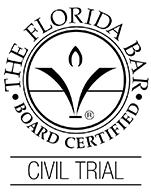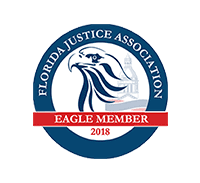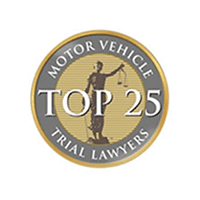E-bikes have become increasingly popular in Florida as a convenient and eco-friendly mode of transportation. However, with their growing presence on the roads and bike paths, questions about safety and legality have also arisen. Understanding Florida’s laws concerning e-bike use is crucial, especially when it comes to accidents and liability. Riders need to be aware of regulations regarding where e-bikes can be ridden, helmet requirements, and the steps to take if involved in an accident.
If you were injured in an e-bike accident, you deserve to have a proven attorney on your side. Dismuke Law is well-versed in the complexities of e-bike accident cases throughout Florida. Led by Board-Certified Civil Trial Lawyer David C. Dismuke, our team brings decades of personal injury experience to every case. We understand the challenges e-bike riders face and are committed to helping you navigate the legal process, ensuring you receive fair compensation for your injuries.
Are E-Bikes Allowed on Florida’s Roads and Bike Paths?
In Florida, e-bikes are generally allowed on roads, bike lanes, and designated paths, but the specifics depend on the class of the e-bike and local regulations. Florida Statute 316.20655 categorizes e-bikes into three classes based on their motor power and speed. Class 1 and Class 2 e-bikes, which have a top speed of 20 miles per hour, are allowed on bike lanes and multi-use paths, unless a local ordinance specifically prohibits them. Class 3 e-bikes, which can reach speeds of up to 28 miles per hour, are typically restricted to roadways and are often not allowed on bike paths unless explicitly permitted by local law.
Additionally, under Florida Statute 316.1995, e-bikes are not permitted to be ridden on sidewalks unless a local law specifically allows it. This means that riders must typically stick to the road or designated bike lanes, ensuring they are following both state laws and any local restrictions. It’s crucial for riders to check local regulations, especially in areas such as parks or city centers, where different rules may apply.
By understanding where e-bikes can be used, riders can avoid fines and ensure they are riding safely and legally in Florida.
What Are the Helmet and Age Requirements for E-Bike Riders in Florida?
In Florida, helmet and age requirements for e-bike riders vary depending on the rider’s age and the class of the e-bike. Florida Statute 316.20655 sets the rules regarding helmet use for e-bike riders. If you are under 16 years old, wearing a helmet is mandatory when riding any type of e-bike. Riders 16 and older are not required by law to wear a helmet, but it is still strongly recommended for safety.
When it comes to age restrictions, Florida law does not allow anyone under 16 to operate a Class 3 e-bike. However, individuals of any age can ride as a passenger on an e-bike, provided the bike is designed to carry multiple riders. There is no minimum age requirement to operate Class 1 and Class 2 e-bikes, but parental discretion is advised.
What Damages Can You Collect After a Florida E-Bike Accident?
If you are injured in an e-bike accident in Florida, you may be entitled to compensation for a range of damages. These damages are meant to cover the financial costs of your recovery as well as the physical and emotional toll of the accident. The specific damages you can claim depend on the severity of your injuries and the circumstances surrounding the incident but may include the following:
- Medical expenses (current and future)
- Lost wages and reduced earning capacity
- Property damage (e-bike repairs/replacement)
- Pain and suffering
- Emotional distress
- Loss of enjoyment of life
In some cases, if the accident was caused by particularly reckless or intentional behavior, you may also be able to pursue punitive damages, which are meant to punish the at-fault party. Recovering these damages can be critical in helping you rebuild your life after an e-bike accident, ensuring you’re compensated not only for your financial losses but also for the personal hardship you’ve endured.
How Dismuke Law Can Help with Your E-Bike Accident Case
If you’ve been injured in an e-bike accident, navigating the complexities of Florida’s laws can be overwhelming. At Dismuke Law, we’re dedicated to making the process as smooth as possible for you. With decades of experience in personal injury cases, including e-bike accidents, we understand how to build a strong case to help you pursue the compensation you deserve. Whether you’re dealing with medical bills, lost wages, or emotional distress, we’ll be by your side to guide you every step of the way.
Our firm, led by Board-Certified Civil Trial Lawyer David C. Dismuke, has a proven track record of success in helping accident victims recover from their injuries. We bring personalized attention to every case, treating our clients like family and ensuring no detail is overlooked. If you’re ready to discuss your case, contact us today at (863) 250-5050 or fill out our contact form.


![cftla-member[2]](https://www.1800askdave.com/wp-content/uploads/2022/03/cftla-member2.png)
![cftla-member[3]](https://www.1800askdave.com/wp-content/uploads/2022/03/cftla-member3.png)










